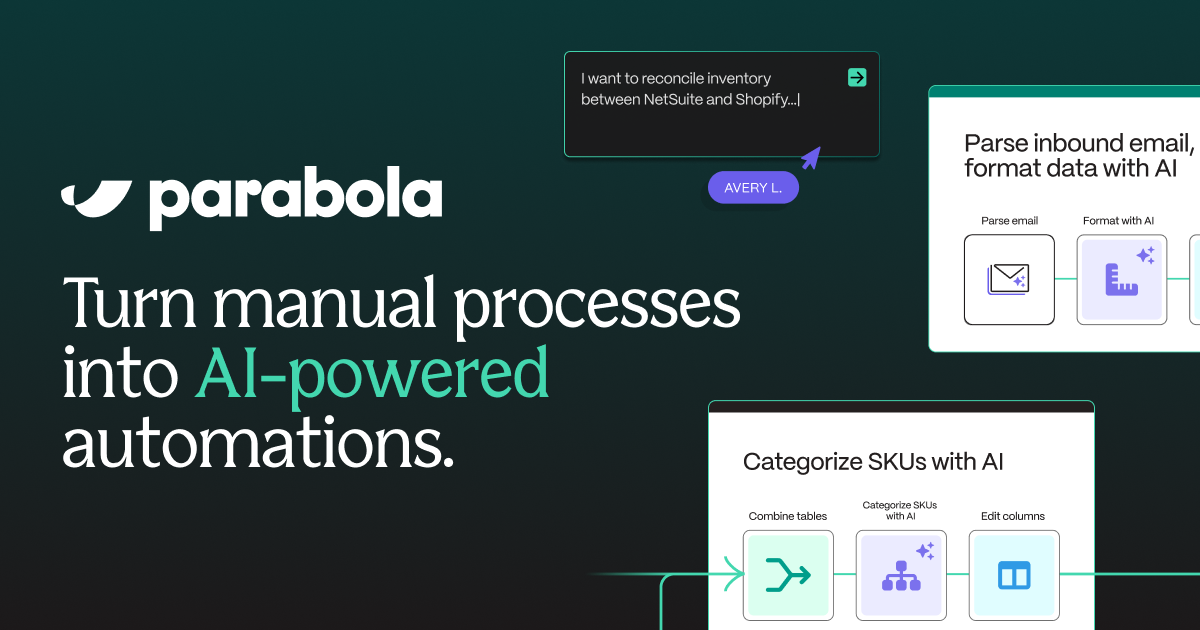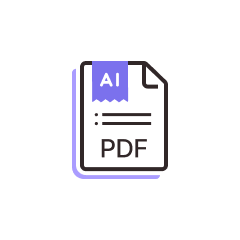Combine NetSuite and PDF File Data Using AI – Free Template
Upload your PDF file, connect to NetSuite, and use this ready workflow to merge both datasets — no coding required.

Upload your PDF file, connect to NetSuite, and use this ready workflow to merge both datasets — no coding required.









Before you can begin finding and replacing values, you'll need to pull your data from NetSuite into Parabola. The process starts with the Pull from NetSuite step, which connects directly to your NetSuite saved searches and brings your data into your Flow.
Parabola's PDF handling capabilities enable you to extract and transform data from PDF documents efficiently.
Parabola's PDF data extraction functionality enables you to convert PDF documents into structured, analyzable data. The platform can handle various PDF formats and layouts, making it versatile for different business needs.
Once you have both data sources imported into your Parabola Flow, you can combine them using the Combine Tables step. This powerful feature allows you to merge data based on common fields, creating a comprehensive dataset for analysis.
Automatically match NetSuite invoice records with PDF invoices from vendors or customers. This process helps accounting teams verify transaction details and maintain accurate financial records while reducing manual data entry.
Combine customer information from NetSuite with PDF contracts to create a centralized repository of customer agreements. This enables better contract tracking and compliance monitoring.
Match NetSuite inventory records with PDF shipping manifests or purchase orders to verify stock levels and identify discrepancies. This helps maintain accurate inventory counts and improves supply chain management.
Parabola's ability to combine NetSuite and PDF data provides a powerful solution for businesses looking to automate their data processes and improve accuracy. By following the steps outlined above, you can create efficient Flows that save time and reduce errors in your data management tasks.








Request a demo and see how Parabola can automate
your most manual SOPs.